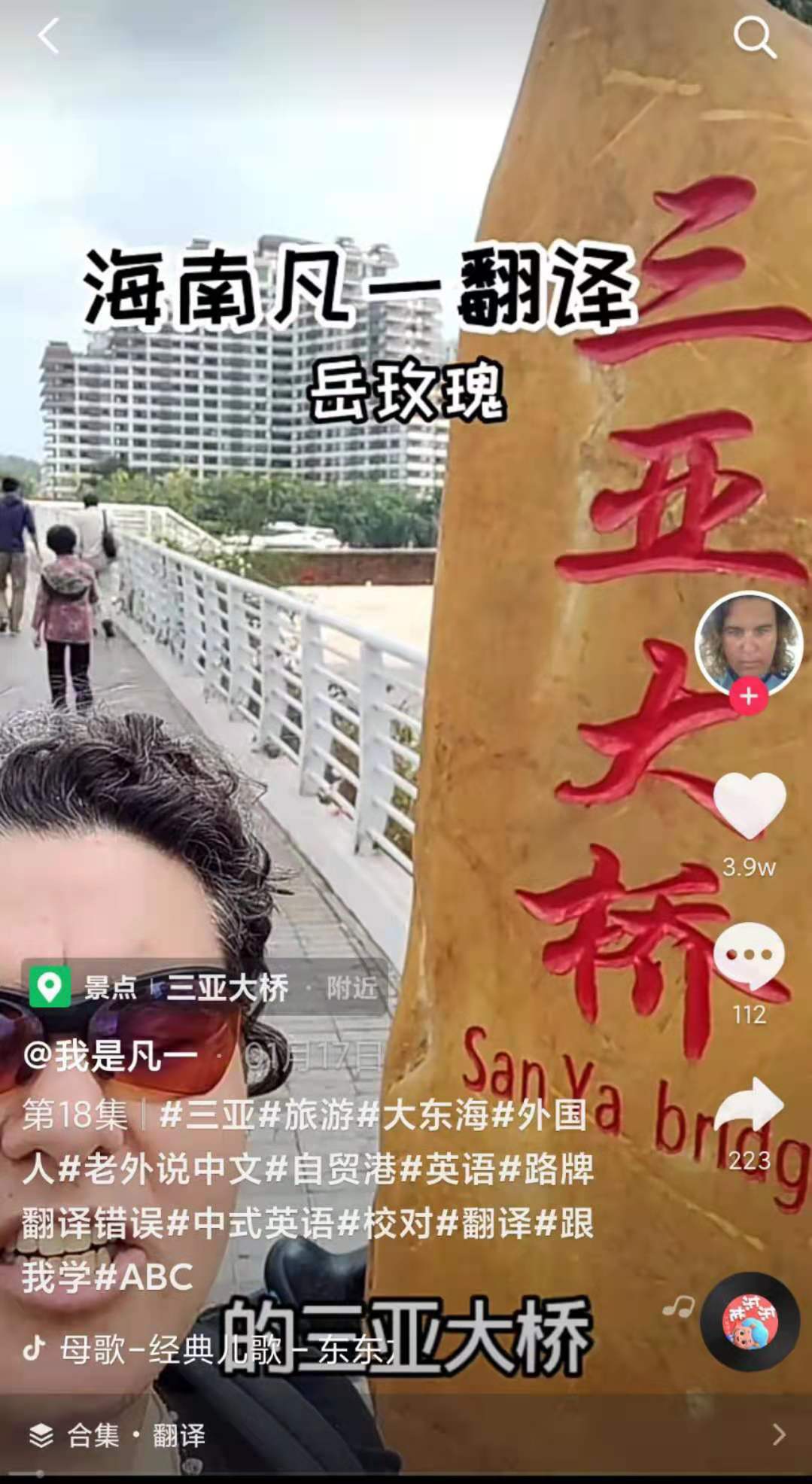Welcome to 2021, where social media influencers in their teens and early 20s are making just as much, if not more, than high-level CEOs. With a few taps and swipes, you can find yourself exploring caves deep under the sea or learning how to master the latest beauty trend with your favorite online personalities – the possibilities are endless.
In China, short-video platforms have taken the internet by storm and everyone is hoping to get a piece of that sweet pie. Not only that, viewers are constantly sharing, posting and commenting, which is the lifeblood of content creators. But what happens when a repost or media outlet shares content without permission or credit?
Laws on how to enforce copyright protection and what is viewed to be under protection are shrouded in gray and murky territory. Cases are now popping up over content posted on platforms such as Instagram, Tik Tok, Douyin and Facebook and are being taken and posted without credit elsewhere.
Marian Rosenberg, general manager of Hainan #1 Translation Co., Ltd., and social media personality, has found herself facing this exact conundrum, locked in a legal battle with a large media station over a now viral post she made on China’s version of Tik Tok, Douyin. Rosenberg came to China in 2002 and has since made a name for herself. She started as a teacher in Hebei and then found an unquenchable passion to learn Chinese when she was thrust into the position of ‘professional translator’ at the first Tour of Hainan in 2006, only three semesters into learning the language.
Now she owns her own translation company with branches in Hainan and Hangzhou. Business is good and she works delegating and translating for various people, organizations and companies. One day however, she found that one of her pro-bono translations for the foreign community of Hainan had ‘escaped into the wild’ with someone else’s name on it. This led her to create her own official WeChat account to post her translations and as a way to catch anyone stealing from her as she put in place proper copyright protections and time stamps.
Soon after a friend suggested that she should expand her presence to China’s short-video platform Douyin. After 16 days on the platform, she got her first million-view video. Needless to say, her friend gave her some solid advice.
This January, Rosenberg made a trip down to Sanya, Hainan, to visit an old friend. On her way to the train station, she decided to stop on the Sanya bridge to make a quick, sarcastic video about English errors carved into a large boulder. Since the video also dealt with what she does for a living, she opened it with her personal and company name. As it was posted on Douyin, anyone downloading it would automatically get a watermarked copy.
Sanya news program First Livelihood (第一民生) were the first to contact and interview Rosenberg about her video going viral and when using her video they credited her. Her video and other associated videos regarding the boulder went viral, with two of them hitting ‘Top 20 Trending Videos in China’ for over 12 hours. As of May 6, Rosenberg’s video was at just under 3 million views, and she gained over 3,000 new followers in 24 hours.

Screenshot via Marian Rosenberg/Douyin
However, she found others wanted to monopolize on her success without due credit. “A TV station in Liaoning, with a tumultuous relationship with respecting copyright, decided to take my video, edit it together with the Sanya TV video, use the music from the Nanhai Net video and post it as their own,” said Rosenberg. This is not the first time this station has done something like this as they previously lost a copyright infringement case brought against them by a Chinese photographer.
The Liaoning station edited out her name, company name, removed her watermark and put their watermark across her face. She only saw they had used her video when someone in the comments tagged her.
Rosenberg then left some comments of her own and privately messaged the program:
“You cut off my watermark and the name of my company. I really didn’t expect this from a media company.” She continued, “How hard would it be to take five minutes and ask me for permission?”
After brushing her off with a “we found it online”, they eventually asked how much she wanted in compensation. She replied, “You had 40,000 likes, so I think RMB20,000 would be appropriate.” To which they simply gave an emoji “thumbs-up.” After the emoji, the station then stopped responding to her.
That Monday, Rosenberg’s assistant went through every avenue to get in contact with the media company and had no luck at getting them to answer the phone. She then sent an informal request letter written by her lawyers via WeChat asking for compensation of RMB113,960 based on current rates for purchasing views direct from Douyin.
Then she went to a notary for Verification of Digital Evidence and proceeded to send a formal demand letter from a lawyer. This was ignored. Per Chinese legal practice a second formal demand letter had to be sent and this time they responded.
From other content creators’ experience, she was expecting them to come to some kind of an agreement where they guaranteed they would hire her company for some of their professional services at market rates equal to the amount being asked in compensation. Instead, the response she got was a slap in the face as they offered to “credit her when re-posting three of her videos to their platform and to post said videos for free.”
“They responded promptly and with very formal Chinese to basically tell me to go screw myself, that they would never pay money for content that had been found online and that if I had a problem I could sue them,” says Rosenberg.
This insane offer pushed Rosenberg and her team to reach out and see if they could file a ‘court on the cloud case’ from Hainan, and when approved, they filed the case. Legally, the news agency was given two weeks to respond to negotiate via mediation, but they did not. Due to no friendly negotiations being reached, the case is on the docket for June 3, 2021.
Rosenberg said her court fees, which can range from RMB200 to five and six figures depending on how difficult the court thinks the case will be, are set at RMB688. The number 688 has an auspicious meaning in China of ‘path to great fortune,’ so she believes with China’s recent push to enforce copyright protections “it is reasonable to assume what the court’s decision is going to be.”
As most cases like this are settled outside of court, her lawyers said they could not determine the value of a stolen Douyin video. “This has the potential of being the landmark case that defines the value of a stolen video,” Rosenberg says, adding that if they had just asked, she would have sent them the original unwatermarked files.
In the past few years, China has amended and cracked down hard on copyright laws and infringement. According to an article from Chinese media outlet Xinhua, “Legal experts have said the key to copyright protection is to make sure the penalty is higher than the gains from violations.”
As information is being given via multiple platforms and mediums, the laws will continue to expand, and cases like Rosenberg’s are the cornerstone to what precedents we will see in the future regarding online property.
READ MORE: WIN! 4 Tickets to Laugh at the Big Big Beach Comedy Tour
Leila Hashemi is a Beijing-based writer and editor with a passion for dad jokes, pizza and memes as well as sharing her experiences of living and working in China over the past five years. Follow her on Instagram @astaggeredmind.
[Cover image via Pexels]
Would you like to promote your business, organization or product? Contact Vanessa Jencks via email at vanessajencks@thatsmags.com and on WeChat by scanning the QR code below:

Follow That’s Sanya
Stay up to date on all things Sanya. Find us on Facebook, Instagram and
WeChat (Search for SanyaPlus) or scan the QR code below. Click ‘follow’
to get daily info about Sanya – from hotels and holiday options,
beaches to mountains, restaurants to nightlife, fitness to spas – as
well as talking to the diverse people who make Sanya the destination it
is.

















0 User Comments